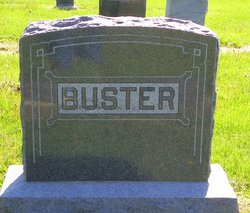 |
| Downton Iola, KS |
Twelve years later, to magnify the scandal, Harry disappeared. The rumor: one of the women he was having an affair with had two brothers who were released from prison. When Harry disappeared in 1920, so did the money, the Ford Model-T, and his mistress’s two brothers. Harry never contacted his family since; including his father who was dearly close to him despite his foibles. In all realities, however, I think Harry’s fate was brought on by his own desire to abandon his responsibilities, but his disappearance never did bring closure to anyone. Subsequently Myrtle moved to California while the decade was still fresh and prosperous and could offer promises her wayward husband could not. On the train to central California, about a couple years later, (regrettably her two brothers died in 1918—one in France during the war, the other from influenza,) she took her three younger children, my grandfather among them, while her other two older sons stayed behind to finish school in the rural town of Iola. Henry, her father, never did remarry.
So now, let’s backtrack to my singular intention. Foremost, middle age has an uncanny way of redefining your identity. And so does the death of both your parents within nine months due to two types of cancer. Existential crisis echoes in between your ears like Jerry Seinfeld's nasally voice. It’s poignant. And annoying and unwelcoming at times. I couldn’t write during this transition. The void left me anxious, sore in my chest, and extremely bored. Insanely so. Once I completed my TV binging, I finally monopolized the time to explore my parents’ lineages, and what’s more, had an unwavering commitment. The months spent revealed a heavy history. I had no idea my lineage in America endured four hundred years. I understood pre-Revolutionary, but not during early European colonization that went as far back as the 1620’s, and surprisingly to Dutch New York as well as the Mayflower. But, of course, with that kind of long history befalls a recognition of accountability. A mixture of honor and shame that colonization wrought with it and permeated into American culture. That while your ancestors may have accomplished remarkable things, the downside of their arrogance helped to cultivate and sustain inequality and bigotry. The sooner we, as a nation, can acknowledge our past and how it continues to hurt ourselves, and take responsibility in some fashion or another, instead of dismissing it as only the past, we cannot actually move forward. We are no longer ignorant. And administrating denial is cancerous.
 |
| Capt. Claudius Buster |
When the Busters, also on my mother’s side, had emigrated during the early 18th Century from Britain, at first I didn’t think much more about them as I did with the others. I’ve always thought the surname was a bit odd and humorous, often thinking about old Depression Era movies with their Transatlantic accents, calling out to strangers, “Hey, Buster!” I linked my direct line to the Revolutionary War, War of 1812, and of course, the Civil War. I pursued the paper footprints from Virginia to Kentucky to Illinois, and ultimately to Kansas. Striking facts about my many generational great-grandfathers accumulated. It became like an Easter egg hunt and I wondered how many “eggs” I could find in historical archives and newspapers. Then I got curious about my generational great-uncles as well; chiefly, Captain Claudius and Claudius Caesar. With names like those, one would have to be a dullard to not investigate further. When I read about Claudius’ exploits in Texas prior to and after the Mexican-American War, including a two month trek across Mexico to avoid recapture but was recaptured anyway and sent to Mexico City as a prisoner of war, and about his direct descendants, I slowly realized that I had discovered something larger than my direct family tree. Aside from taking notice of how often their names appeared in historical print from the Southeast and West Coasts, and finding shared stories on Ancestry.com, Geneologybank.com, and other online resources, as their personalities transformed from one dimensional relics to human beings, that was when I decided to dedicate an entire book about the Buster clan. Once woven into history, cultural icons then represent the best, and even the worst, of our societies. No one can argue that the Busters, indeed, did both. In doing so, I hope to inspire a rehabilitation for our societal cancer, and open discussions for healing and reconciliation for racial and gender disparities.

"Then I got curious about my generational great-uncles as well; chiefly, Captain Claudius and Claudius Caesar. With names like those, one would have to be a dullard to not investigate further." This comment explains why we do this. My ancestors are Michael Marion Woods and Mary Campbell and i love all the interesting detail you have provided. I had been tracing my roots back for five generations and just recently decided to see who were first immigrants. they go back to 1606! Many of my Virginia ancestors seemed to be indentured servants. What an interesting surprise Michael Woods and Mary Campbell turned out to be... worthy of "Finding My Roots". Thank you so much. I am a graphic artist so I appreciate how much work you have put into this beyond genealogy research.
ReplyDelete